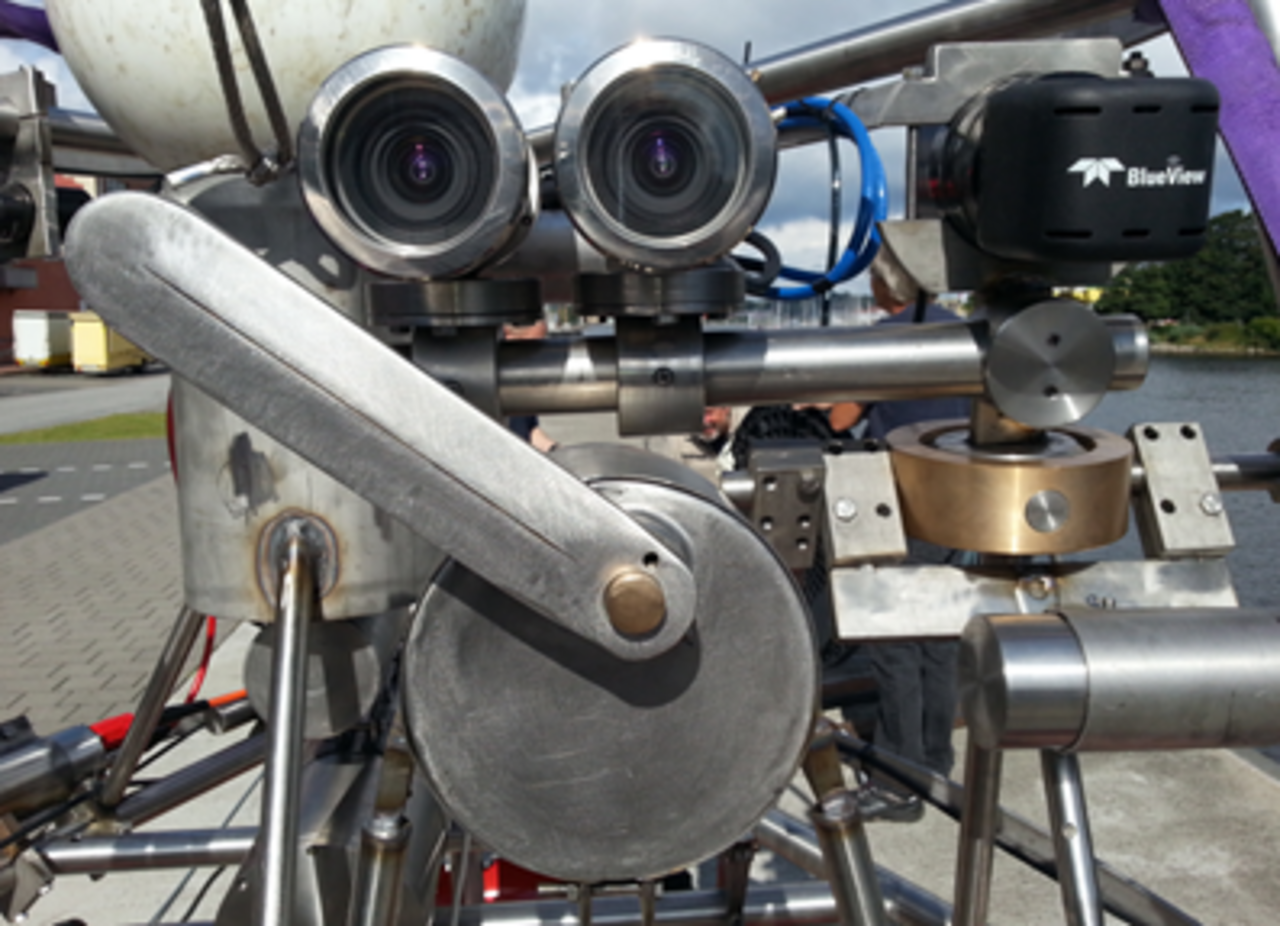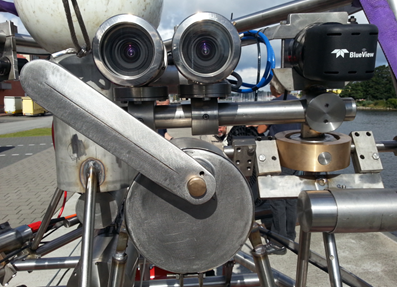Project
UFOs in the North Sea ...

Development of a non-invasive, acoustic-optic underwater fish obsvervatory (UFO)
Climate change, fisheries, and several other factors affect marine ecosystems in many ways. To capture its dynamics in a better way, we develop a technically innovative underwater fish observatory at the Thünen Institute of Sea Fisheries.
Background and Objective
We aim at capturing fish and their natural environment synoptically, at a high resolution, continuously and non-invasively in an automated fashion. The data acquisition is even possible where research vessels cannot go to or where these are prohibited (wind farms, protected areas, mariculture, gillnet areas, etc.). With the data obtained, the dynamics and the state of the captured fish populations can be analysed, the size of stocks be calculated and the fisheries be managed.
The initially stationary UFO monitoring system combines advanced optical and acoustical sensor technologies. The synchronized mechanism works in an event-based manner: A highly sensitive sonar system sends out acoustic pings that detect passing objects such as ships, whales, seals or fish. If it is fish, the sonar creates special acoustic recordings (echograms), that will be blended with synchronously generated photo sequences taken by extremely light sensitive (“low light”) stereo underwater cameras. Simultaneously, the species, size and distance of fish are automatically determined; other quantities, such as the volume, weight or age of fish may be derived from these. Other sensors for measuring environmental parameters are also turned on. In this way, we create complex data sets for the quantitative assessment and modelling of fish populations, so that labour-intensive, costly and stocks influencing samples (catches) can be reduced.
For areas where static UFOs cannot be used, a mobile version shall be developed later, which will be "linked" with the static variants and that can communicate with these. Both systems can be integrated into a decision-making system, a so-called "decision support system", to facilitate decisions and by this supporting the management of fish stocks.
UFO is a subproject of AutoMAt, the joint project "Development of innovative and non-invasive monitoring systems for fisheries research".
Target Group
science, politics
Results
We expect high-resolution, continuous and synchronous time series on various characteristics, behavioural patterns and statistical quantities of fish stocks and their environment recorded by the UFO system that will allow us an objective and thorough assessment of the state of fish stocks and that of the environment. In addition, statements about the influence of e.g. climate change, fisheries activities and other anthropogenic factors such as wind farms or the establishment of protected areas can be made. Many UFOs being deployed in key areas will allow us inferring statements on all facts and conditions as mentioned above. In this way, we will achieve assured analysis results, that have the potential to facilitate the upcoming decision-making process and foster sustainable management. Due to its design, the UFO system plus the information gained by it can be thought of as being a part of a broader "Decision Support System".
Links and Downloads
Involved Thünen-Partners
Involved external Thünen-Partners
- Fachhochschule Kiel
(Kiel, Deutschland) - M-B-T Meerestechnisches Büro Turla GmbH
(Kiel, Deutschland) -
Universität Hamburg
(Hamburg, Deutschland) -
Helmholtz-Zentrum Hereon (alt: Helmholtz-Zentrum Geesthacht)
(Geesthacht, Deutschland)
Funding Body
-
Federal Ministry of Food und Agriculture (BMEL)
(national, öffentlich)
Duration
7.2013 - 6.2015
More Information
Project funding number: 313-06.01-28-1-28-1-91.007-12
Funding program: Innovationsförderung
Project status:
finished

![[Translate to English:] [Translate to English:]](/media/_processed_/7/1/csm_IMG_7977_large_1defaf5de1.jpg)







